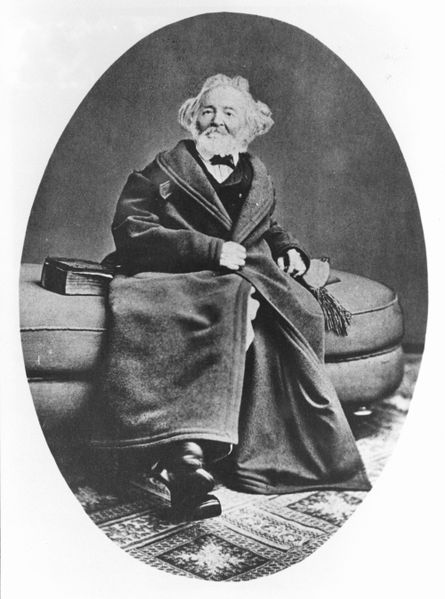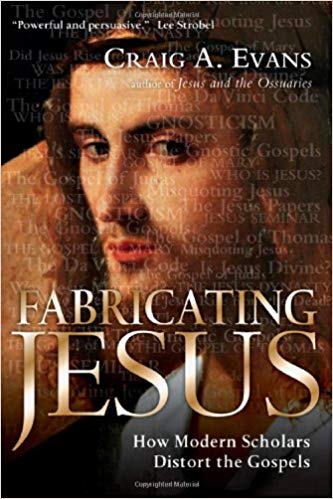Several believers in the inerrancy of the Bible text have strongly urged me to read Boyd and Eddy’s The Jesus Legend so I have finally got around to it.
But Boyd and Eddy actually deny or remove from a story the occurrence of a dramatic nature miracle in order to rationalize a mere apparent geographic discrepancy in one of Mark’s stories. Their explanation makes perfect sense, but only at the expense of ignoring much of what Mark actually wrote and above all ignoring – as if it never happened at all and had no impact on the characters whatever -the miracle in the middle of the story.
Why do fundamentalists recommend, let alone write, such a book?
I started near the end, on page 447, as specifically requested by the most recent advocate insisting I should read this. The discussion is about supposed geographic errors in the Gospel of Mark.
After miraculously feeding the 5000 Jesus sent his disciples out across the “Sea” of Galilee (only Mark and his more literal translators call this lake a “sea” but we’ll leave aside that specific geographic anomaly for now) “to Bethsaida”. Bethsaida was on the eastern shore of the lake. But by the time the disciples land they are said to be at Gennesaret on the western shore.
Boyd and Eddy say they can explain this discrepancy by joining with other commentators and arguing thus:
“the disciples encounter a storm during their boat voyage” (p.449)
“In fact the episode is told for this very reason — a strong storm arises and Jesus meets them, walking on the water, to calm their fears.” (p.449)
Why don’t literalist fundamentalists take up stones to throw at Boyd and Eddy for blasphemy and for contradicting the Scriptures when they write stuff like this?
Firstly, what storm? Here is what Mark 6:47-48 actually says:
When evening came, the boat was in the middle of the lake, and he was alone on land. He saw the disciples straining at the oars, because the wind was against them.
Mark used another word for “storm” (lailaps) in his earlier miracle story of Jesus commanding the storm, wind and seas that threatened to end the lives of the disciples to be still. Here is uses only the word for “wind”, and contra Boyd and Eddy and the commentators they follow here, Mark nowhere says a storm was involved.
The disciples were not in fear of drowning. They were “merely” having a very tough time rowing against the wind. What was that passage in the Book of Revelation about curses on those who would add a single word to scriptures?
Secondly, the second statement of Boyd and Eddy — that Mark told this story for the very reason of demonstrating how Jesus went out into the storm, walking on water, to reassure the disciples — contradicts the story as we read it in Mark.
Facts of the story as writ:
- Jesus was about to pass the disciples by. He only turned towards them and joined them after they were terrified at seeing him.
- It was the fear of seeing what they thought was a ghost, not any fear of a non-existent life-threatening storm, that Jesus responded to.
- The reason Mark told the story, if his final line is any guide, was to demonstrate the failure of the disciples to comprehend the miracle of the loaves and fishes, and thus to demonstrate just how hard-hearted they really were.
In its own words:
When evening came, the boat was in the middle of the lake, and he was alone on land. He saw the disciples straining at the oars, because the wind was against them. About the fourth watch of the night he went out to them, walking on the lake. He was about to pass by them, but when they saw him walking on the lake, they thought he was a ghost. They cried out, because they all saw him and were terrified.
Immediately he spoke to them and said, “Take courage! It is I. Don’t be afraid.” Then he climbed into the boat with them, and the wind died down. They were completely amazed, for they had not understood about the loaves; their hearts were hardened.
Matthew was apparently so embarrassed by the moral of Mark’s story (to demonstrate how hard-hearted and unbelieving the disciples were) that he added the story about Peter at least trying to believe and get it right by attempting to walk on water just like Jesus.
Commentators who speculate that Mark omitted this scene from his gospel out of deference to the modesty of Peter (his supposed source) who did not like to “boast” that he walked on water, too, at least for a moment, are playing wishful fantasy games. Mark says (as quoted above) that the point of the story was to demonstrate to his readers just how UNbelieving and UNcomprehending were the disciples led by Peter.
But note in particular that any commentator who tries to argue that Jesus went out to reassure the disciples is simply denying the story as we have it. Mark’s Jesus was about to pass his disciples by. The disciples were terrified — not of any storm (there was no storm) — of Jesus.
Jesus attempted to reassure them they they had no need to fear him. We are reminded of other evangelists who similarly portrayed the disciples after the resurrection of being fearful that they were seeing a ghost, but who then had Jesus reassure them they had no reason to fear anything like that.
Boyd and Eddy next disagree with scholars who suggest that the reassured disciples, with Jesus in the boat, and the wind no longer tending to blow them off course, would have had every reason to re-establish their bearings and continue on their way to Bethsaida, as originally instructed. So why do we read of them berthing on the opposite side of the lake? Boyd and Eddy “explain”:
the actual experience of a group of traumatized, water-logged men on a small boat who just narrowly escaped being drowned . . . . Perhaps stepping onto firm terrain and drying out were more pressing priorities at that moment than turning the boat back into the sea! (p. 450)
Where to begin? Why is this sort of “explanation” not hidden from “sceptics” such as myself as an embarrassment to fundamentalism attempting to save the inerrancy of the Scriptures?
This “explanation” is asking readers to completely overlook, deny, pretend the complete absence from the psychology of eyewitnesses to a most astonishing miracle of a man walking on water and changing the weather by the mere act of stepping in a boat!
Instead, Boyd and Eddy want readers to try to imagine the psychology of sailors who had endured a “storm” (which is not in the story) as if no such miracle had ever occurred!
Mark’s actual story:
- Before Jesus came on the scene, the disciples were hard at work attempting to keep the boat on course against the wind.
- No storm. No fear of drowning. Just hard physical labour of attempting obey the command of Jesus to row to Bethsaida.
- They suddenly see a man walking on water and in the act of passing them.
- They scream in terror at the sight of this “ghost”.
- It turns out to be Jesus and the wind is suddenly favourable again.
How on earth can any reader honestly impute into such a story the image of Boyd and Eddy of “a group of traumatized, water-logged men on a small boat who just narrowly escaped being drowned”.
Such an image is a complete denial of the story Mark told.
By attempting to “rationalize” the story to make it historically plausible, and to apparently save any reason for Mark to cite variant geographical settings, Boyd and Eddy in fact destroy the story and tell a completely different one.
Note also how Boyd and Eddy go even further and subtly assume what they are in fact attempting to prove.
Perhaps stepping onto firm terrain and drying out were more pressing priorities at that moment than turning the boat back into the sea!
TURNING the boat BACK into the sea? They have neatly just assumed — gratuitously injected into the story — that a storm arose, and that a wind accompanying this took them in a westerly direction, and that they were now somehow near Gennesaret.
Facts as we read them in Mark’s story paint a different scene:
When evening came, the boat was in the middle of the lake, and he was alone on land. He saw the disciples straining at the oars, because the wind was against them. About the fourth watch of the night he went out to them, walking on the lake. He was about to pass by them, but when they saw him walking on the lake, they thought he was a ghost. They cried out, because they all saw him and were terrified. Immediately he spoke to them and said, “Take courage! It is I. Don’t be afraid.” Then he climbed into the boat with them, and the wind died down. They were completely amazed, for they had not understood about the loaves; their hearts were hardened. When they had crossed over, they landed at Gennesaret and anchored there. (Mark 6:47-53)
The only location Mark gives for this scene is “in the middle of the lake”. That is where they were when Jesus “went out to them”. This is to read the story as is, without re-imagining some other story we might find easier to rationalize. And after these events where Jesus had gone — “in the middle of the lake” — then they are described as “crossing over” to land at Gennesaret.
How is it that Boyd and Eddy can honestly inject here the image of all this happening near the shore of Gennesaret so that the disciples would have been required “to TURN BACK TO SEA” to sail to Bethsaida?
No, the geographic question remains. The disciples are sent to Bethsaida and they end up, without explanation, at Gennesaret. Boyd and Eddy’s attempt at rationalization both deny Mark’s account and deny the impact of a miracle on eyewitnesses.
One would expect the oarsmen, who had been labouring exhaustively against the wind to obey Jesus, would have momentarily lost any sense of weariness after their adrenaline rush from witnessing the miracle of Jesus.
Boyd and Eddy fail to address the psychology of those who had really believed they had seen a ghost walking on water, and then the shock of discovering it was Jesus, and then the added awe of witnessing the changing of the weather to give them smooth rowing the moment he reached them.
Instead, they inject an imaginary storm into the story, assume the wind is an easterly and the disciples, instead of straining against it, had been helplessly blown near the shores of Gennesaret, and that the dominant fear they faced was a near-drowning and being left cold and wet.
Surely if this is an attempt to save the story of Mark, and its geographic inerrancy, the gospel has more to fear from its over-zealous friends than its critics.




